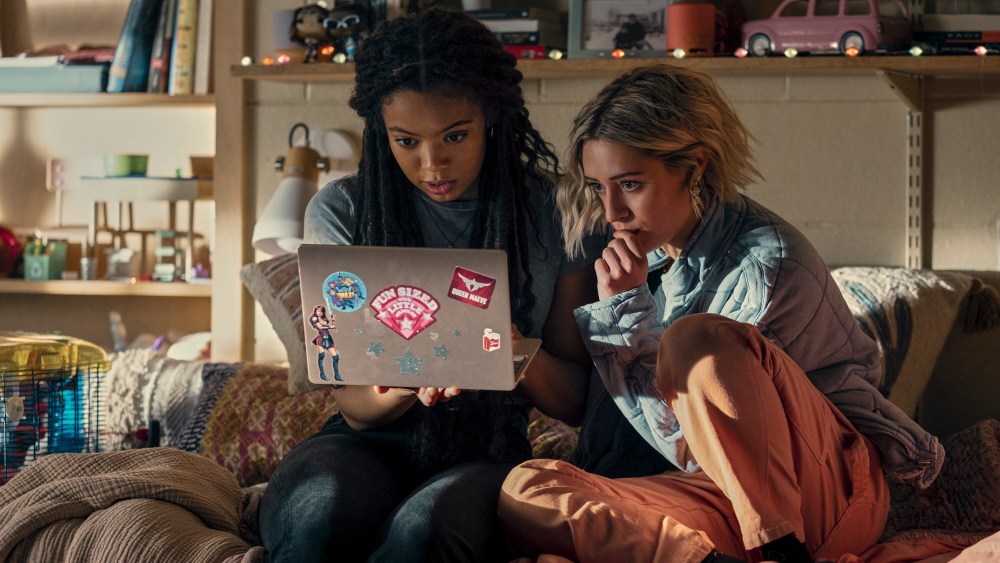Is “The Boys” a satire of superhero franchises or a superhero franchise itself? Such is the question posed by a show that is, among other things, a cautionary tale about corporate monopoly that airs on Amazon. So far, though, the answer is both — a delicate balance “The Boys” has sustained through three acclaimed seasons, an animated anthology series and, now, a live-action spinoff, the college-set “Gen V.” The contradictions of success may eventually take their toll on the pitch-black comedy and its satellites, which portray so-called superheroes as pawns of the rapacious Vought International. But “Gen V” retains the edge, cynicism and (aptly) adolescent humor that make its parent show tick, suggesting “The Boys” is far from the creative fatigue now plaguing juggernauts like the Marvel Cinematic Universe.
Developed by Eric Kripke, Evan Goldberg and Craig Rosenberg, all executive producers of “The Boys,” and showrun by Michele Fazekas and Tara Butters, “Gen V” is set at the Vought-run Godolkin University, often shortened with characteristic humility to simply God U. Under the watchful eye of dean Indira Shetty (Shelley Conn), Godolkin serves as a training ground for “supes,” who in the world of “The Boys” can pursue occupations as disparate as crimefighting and acting. (With ever-present handlers and seminars on media training, the two are closer than outsiders might believe.) God U’s alumni include “The Boys” characters A-Train (Jessie T. Usher) and Queen Maeve (Dominique McElligott), who went on to join supergroup the Seven. Current students are publicly ranked by skill and star power, a list topped at the show’s outset by a literal Golden Boy (Patrick Schwarzenegger).
But three years before the events of “Gen V,” the titular anti-supe squad of “The Boys” threw a wrench into Vought’s perfectly molded pipeline. Superheroes, the Boys revealed to the public, are not born but made — unwittingly dosed as children with a chemical known as Compound V in a mass Vought-run experiment enabled by complicit parents. Once her students found out what was done to them, Shetty coolly brags, Godolkin “barely had any suicides.”
This betrayal, combined with the youth of “Gen V’s” protagonists, makes them more readily sympathetic than the antiheroes of “The Boys.” Freshman Marie (Jaz Sinclair) can manipulate blood and Golden Boy’s girlfriend, Cate (Maddie Phillips), can control minds, but both manifested their powers at the worst possible time for their loved ones, and have spent years living with the guilt. Marie’s roommate, Emma (Lizze Broadway), is closely monitored by her momager, who wants to use Emma’s ability to shrink herself as a means to fame and fortune. Some characters, like an invisible RA who lectures on sexual boundaries with his own member fully exposed, are pure punchlines, yet there’s a baseline of sincerity amid the gross-out humor and cartoon violence.
As in “The Boys,” Marie and her friends soon discover Vought is up to no good, this time through a secret initiative known ominously as “The Woods.” A collegiate context nonetheless offers the writers a fresh set of worthy targets, from date rapists to elite athletes(we see A-Train get “drafted” into the Seven in flashback) to administrators begging donors for funds. As allegories often do, “Gen V” sometimes stretches itself thin; one character’s power is contorted into an awkward metaphor for an eating disorder, while the gender-swapping Jordan (London Thor and Derek Luh) is treated as a stand-in for the real-life nonbinary experience. Such overextensions are still secondary to the core, successful mission of “Gen V” — to expand the world of “The Boys” while feeling more substantial than a rote exercise in brand building. With Season 4 of “The Boys” delayed indefinitely by the ongoing actors strike, “Gen V” will tide over the impatient and carry the torch.
The first three episodes of ‘Gen V’ premiere on Amazon Prime on Sep. 29, with remaining episodes airing weekly on Fridays.

